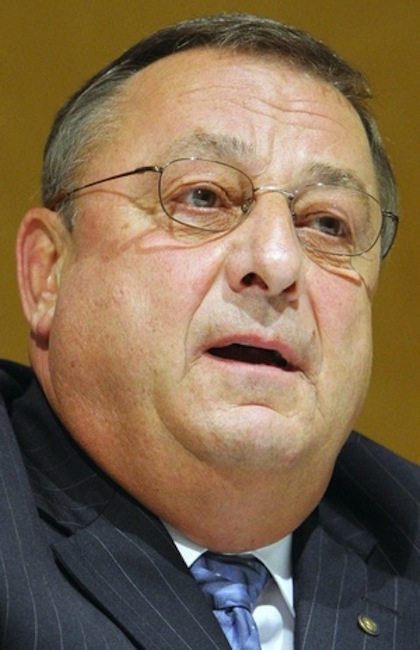AUGUSTA — A bill to provide more public funding for Maine Clean Election Act candidates inched closer to approval Friday, following a 7-5 vote by the Legislature’s Veterans and Legal Affairs Committee.
The bill, L.D. 1309, sponsored by Sen. Edward Youngblood, R-Brewer, would nearly triple the maximum amounts available to candidates running taxpayer-funded legislative and gubernatorial campaigns.
Proponents said the committee vote was a victory for a measure built to reduce the influence of moneyed interests in Maine elections. They said it would strengthen a citizens-initiated law weakened by a 2011 U.S. Supreme Court ruling. That ruling invalidated a part of the law that distributed payments to publicly financed candidates whenever they were outspent by their privately funded opponents.
However, the victory may prove fleeting.
All five Republicans on the committee opposed the measure, and Gov. Paul LePage has repeatedly criticized the Maine Clean Election Act, meaning a veto of L.D. 1309 is likely. While several Republicans have signed on as co-sponsors of the bill, it’s not clear if there is enough support to override a veto.
The governor has called the law “welfare for politicians.”
Republican critics on the panel, each of whom used the program in either the 2012 or 2010 elections, said the $4.5 million cost attached to L.D. 1309 for the fiscal year beginning July 1 was too steep. Others questioned whether the law was successful in keeping money out of politics.
Rep. David Johnson, R-Eddington, said the 2012 election, which set a record in spending by independent groups, proved that the law wasn’t working.
The 2012 election was the first in which Clean Election candidates did not receive matching funds if they were outspent by their opponents or political action committees. More than $3.5 million was spent by third-party groups.
Sen. Garrett Mason, R-Lisbon Falls, said his vote against the measure wasn’t a vote against the Clean Election law, which was overwhelmingly approved by voters in 1996, but Mason said the law had changed significantly since its adoption.
Rep. Diane Russell, D-Portland, agreed that the law had changed, but she said it was up to the Legislature to repair the damage done by the 2011 U.S. Supreme Court decision.
“Mainers want us to fix this,” Russell said.
The Supreme Court ruling came after opponents of matching funds challenged a nearly identical provision in Arizona’s public financing election law. Since then, campaign finance reform advocates in Maine and other states have tried to find alternatives to maintain the viability of laws designed to decrease candidates’ reliance on special interest money and increase interaction with voters.
Proponents of the Maine Clean Election Act hope L.D. 1309 is part of the answer. The bill would increase the maximum amounts publicly financed candidates can receive from $4,923 to $16,500 to those in contested House races, from $21,455 to $65,000 to those in contested Senate races, and from $1.2 million to $3.2 million to those in contested gubernatorial races.
Those maximum amounts would be gained in steps during the election campaign that correspond to the number of $5 qualifying contributions that candidates can secure from members of the public.
The latter provision is designed to replace the absence of matching funds.
The program’s supporters say providing only an up-front payment and no way to collect more funds makes some candidates vulnerable to spending or attacks by outside groups. They also attribute the elimination of matching funds to a decrease in program participation, particularly among legislative candidates.
According to the Maine Commission on Governmental Ethics and Election Practices, an average 78 percent of legislative candidates used the Clean Election program from 2002 to 2010. Participation dropped to 60 percent in 2012 after the removal of matching funds.
Andrew Bossie of Maine Citizens for Clean Elections has said the new proposal would restore the viability of the program.
Steve Mistler can be contacted at 6207016 or at:
smistler@pressherald.com
Send questions/comments to the editors.



Success. Please wait for the page to reload. If the page does not reload within 5 seconds, please refresh the page.
Enter your email and password to access comments.
Hi, to comment on stories you must . This profile is in addition to your subscription and website login.
Already have a commenting profile? .
Invalid username/password.
Please check your email to confirm and complete your registration.
Only subscribers are eligible to post comments. Please subscribe or login first for digital access. Here’s why.
Use the form below to reset your password. When you've submitted your account email, we will send an email with a reset code.